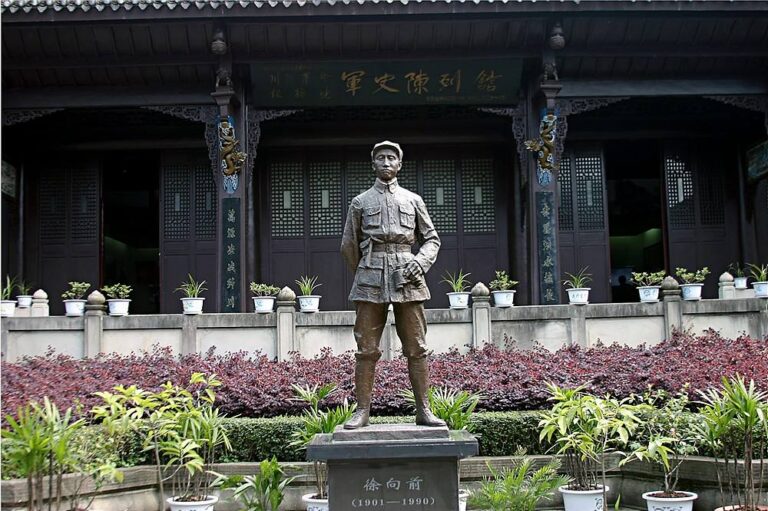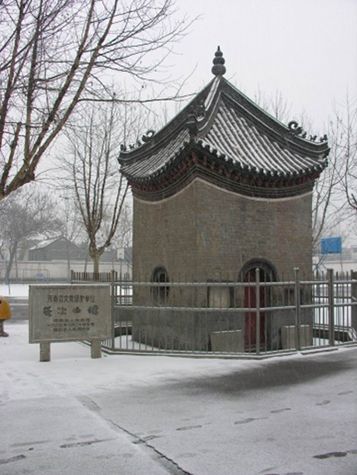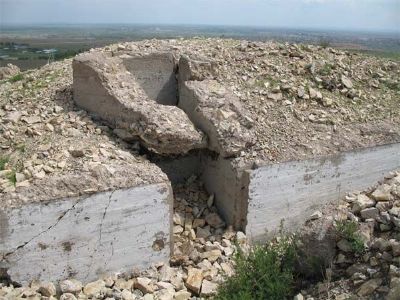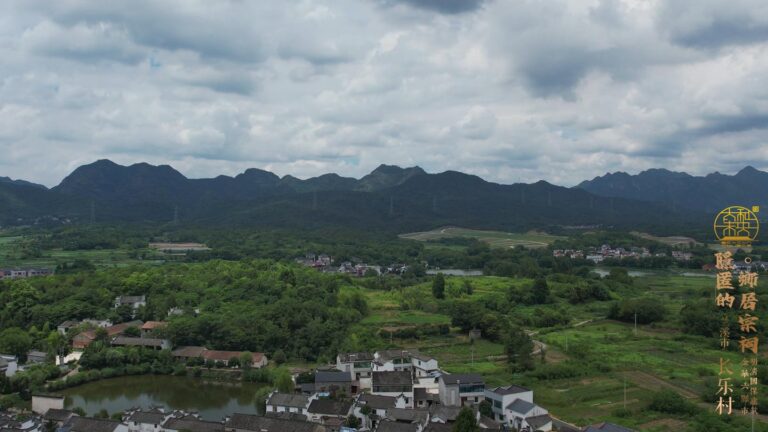A Day in Cangzhou: Exploring the Enchanting Ancient Jujube Garden
An Essential Guide to Visiting Cangzhou Juguan Ancient Jujube Garden
In This Guide
- An Essential Guide to Visiting Cangzhou Juguan Ancient Jujube Garden
- The Rich History of Cangzhou Juguan Ancient Jujube Garden
- Main Highlights: What to See at Cangzhou Juguan Ancient Jujube Garden
- Planning Your Visit: A Practical Guide
- Tickets, Hours, and Booking
- How to Get There
- Local Cuisine and Accommodation
- Frequently Asked Questions
- Final Thoughts on Your Trip
Nestled along the tranquil banks of the Niangniang River in Hebei Province, the Cangzhou Juguan Ancient Jujube Garden is not just a garden—it’s a living testament to China’s rich agricultural heritage. Spanning an impressive 1,000 acres, this remarkable site is recognized as the largest and oldest ancient jujube garden in the country, housing over 1,000 ancient winter jujube trees that stand as resilient witnesses to centuries of history. With tree ages ranging from 100 to an astonishing 750 years, each jujube tree here tells a story of endurance and tradition.
The garden’s historical significance is underscored by its designation as a national key cultural relic protection unit, making it the only plant-based site among such esteemed entities. Its jujubes, celebrated for their thin skin, tender crispness, and sweet flavor, were once deemed worthy of imperial tribute, earning them the title of “tribute jujubes” in the Ming dynasty. This legacy continues to attract visitors year-round, eager to partake in the unique experience of fruit picking amidst the lush greenery.
As you wander through the garden, the air is filled with the sweet aroma of ripe jujubes, inviting you to explore the winding paths lined with ancient trees. This enchanting location is perfect for a leisurely day trip, allowing you to immerse yourself in nature, sample the delectable fruit, and revel in the serene beauty of this agricultural gem. Whether you’re a history enthusiast, a nature lover, or simply seeking a peaceful escape from the hustle and bustle of modern life, the Cangzhou Juguan Ancient Jujube Garden offers a refreshing glimpse into China’s agricultural past and a delightful experience in the present.
The Rich History of Cangzhou Juguan Ancient Jujube Garden
Nestled along the banks of the Niangniang River in Hebei Province, the Cangzhou Juguan Ancient Jujube Garden is a remarkable testament to China’s agricultural heritage. This site is recognized as the largest and oldest ancient winter jujube garden still in existence, featuring over a thousand jujube trees, some of which have stood for more than 600 years.
The origins of the garden can be traced back to the early Ming Dynasty, when the Liu family migrated from Shandong to this relatively undeveloped area. Their ancestor, Hong Gong, recognized the potential of the land and began cultivating jujube trees, leading to the establishment of what would become a renowned agricultural site. By 1490, the quality of the Juguan winter jujube had gained such esteem that it was designated as a tribute product by Emperor Zhu Xiaozong, marking the beginning of the garden’s legacy as a royal supplier.
The garden spans an impressive 1,000 acres, housing 1,067 ancient winter jujube trees. These trees are often referred to as “living fossils” due to their robust health and long-standing cultivation history. The jujubes produced here are celebrated for their thin skin, tender crispness, and unique sweetness, making them a sought-after delicacy.
In recognition of its historical significance and the preservation of this unique horticultural heritage, the Cangzhou Juguan Ancient Jujube Garden was declared a national key cultural relic protection unit by the State Council in 2006. It is the only plant-based site among the list of protected units, emphasizing its importance in the narrative of Chinese agricultural practices.
Moreover, the garden was designated as China’s first fruit geographical indication protection area in 2002, further solidifying its role in preserving traditional farming practices and regional specialties. This recognition not only helps protect the ancient jujube trees but also promotes sustainable agricultural practices and local tourism.
Visitors to the garden can immerse themselves in its rich history by exploring the tranquil landscapes, understanding the cultivation methods that have been passed down through generations, and tasting the exquisite jujubes that have delighted emperors and local residents alike. The garden stands as a vibrant symbol of China’s agricultural past and continues to thrive as a living monument to the enduring legacy of the jujube.
Main Highlights: What to See at Cangzhou Juguan Ancient Jujube Garden
Nestled along the banks of the Nanniang River in the picturesque Ju Guan Village, the Cangzhou Juguan Ancient Jujube Garden is a remarkable destination that celebrates both nature and history. Here are some of the garden’s most captivating highlights:
-
Historical Significance: Recognized as the largest and oldest ancient jujube garden in China, this site has been cultivated for over 600 years. Its status as a national key cultural relic protection unit underscores its importance in preserving agricultural heritage.
-
Unique Flora: The garden spans an impressive 1,000 acres and is home to 1,067 ancient winter jujube trees, with some exceeding 600 years in age. These trees are not just plants; they are living relics, often referred to as “living fossils” of the winter jujube species. Their fruits are celebrated for their thin skin, tender flesh, and delightful sweetness, making them a local delicacy.
-
Cultural Heritage: The jujubes from Ju Guan were so highly regarded that they were designated as imperial tribute during the Ming Dynasty. The garden has since become a symbol of local pride and cultural significance, attracting visitors who wish to experience a piece of this rich history.
-
Bountiful Harvests: Visitors can enjoy the experience of fruit-picking during the harvest season, immersing themselves in the joy of gathering fresh jujubes directly from the trees. This hands-on activity serves not only to delight the palate but also to educate guests about traditional agricultural practices.
-
Natural Beauty: The garden offers a serene environment ideal for leisurely walks, picnics, and relaxation amidst the lush greenery. The combination of ancient trees and vibrant landscapes provides a perfect backdrop for photography and contemplation.
-
Accessibility: Open year-round and free of charge, the garden welcomes visitors to explore its beauty without any barriers. A recommended visit duration of 4-6 hours allows ample time to savor the sights, sounds, and flavors of this unique destination.
-
Nearby Attractions: The garden is conveniently located near other cultural sites, including local museums and scenic parks, making it easy to plan a full day of exploration in the Huanghua area.
In summary, the Cangzhou Juguan Ancient Jujube Garden is not only a haven for nature lovers but also a vital link to China’s agricultural and cultural past. Whether you’re a history enthusiast, a food lover, or simply seeking a peaceful retreat, this garden promises an enriching experience that highlights the beauty and significance of traditional Chinese farming practices.
Planning Your Visit: A Practical Guide
Practical Guide to Cangzhou Juguan Ancient Jujube Garden
Visiting the Cangzhou Juguan Ancient Jujube Garden is a unique experience that combines nature, history, and culture. Here’s everything you need to know to make the most of your trip.
Location and Access
The garden is located in Juguan Village, near the banks of the Niangniang River in Huanghua City, Hebei Province. It is easily accessible by car or public transportation from nearby cities, including Cangzhou. If you are traveling from Beijing, the journey is approximately 250 kilometers, taking around three hours by car.
Best Time to Visit
The garden is open year-round, but the best months to visit are from September to November when the jujubes are ripe for harvesting. This period also offers pleasant weather, making it ideal for outdoor activities like strolling through the garden.
Admission and Opening Hours
Entry to the Cangzhou Juguan Ancient Jujube Garden is free, allowing visitors to explore the vast 1,000-acre site without any fees. The garden is open all day, providing flexibility in planning your visit.
Duration of the Visit
Plan to spend approximately 4 to 6 hours at the garden. This timeframe allows you to fully appreciate the ancient jujube trees, partake in fruit picking, and enjoy the serene surroundings.
What to See and Do
- Explore Ancient Jujube Trees: The garden is home to over 1,067 ancient winter jujube trees, some of which are over 600 years old. These trees are considered living fossils and are renowned for their delicious, sweet fruits.
- Fruit Picking: Depending on the season, visitors can participate in fruit picking. The jujubes here are known for their thin skin and crisp, sweet flesh.
- Cultural Experience: Learn about the historical significance of the jujubes, which were designated as tributes during the Ming Dynasty. The garden holds cultural heritage as it has been protected since 2006 as a national key cultural relic protection unit.
- Photography: The picturesque landscape and ancient trees offer excellent opportunities for photography, making it a great spot for capturing memories.
Nearby Attractions
While in the area, consider visiting additional sites:
– Huanghua Museum (5 km away): A cultural institution showcasing local history and artifacts.
– Bohai New Area Expo Park (6 km away): A modern entertainment park ideal for families.
– Sheng Tai International Hotel Water World (6 km away): A fun destination for water activities.
Practical Tips
- Dress Comfortably: Wear comfortable clothing and shoes suitable for walking, as you will be exploring a large garden.
- Bring Supplies: Although entry is free, consider bringing snacks and water, especially if you plan to spend several hours there.
- Respect the Environment: As with all natural sites, be mindful of litter and stay on designated paths to protect the trees and surrounding ecosystem.
Contact Information
For more details, you can reach out to the local tourism office or check online resources for any updates or events occurring during your visit.
Embark on a journey through history and nature at the Cangzhou Juguan Ancient Jujube Garden, where the past meets the present in a landscape filled with ancient wisdom and natural beauty.
Tickets, Hours, and Booking
Visitors to the Cangzhou Juguan Ancient Jujube Garden will be pleased to know that entry to this remarkable site is completely free of charge. This allows everyone to explore and appreciate the beauty and historical significance of one of China’s oldest and largest ancient jujube orchards without any financial barriers.
The garden is open all year round, providing ample opportunity for guests to enjoy its stunning landscapes, ancient trees, and unique agricultural heritage. It is advisable to allocate approximately 4 to 6 hours to fully experience the garden, including leisurely walks among the impressive 1,067 ancient winter jujube trees, some of which boast ages exceeding 600 years.
Whether you’re interested in the rich history of the jujube trees, the opportunity for fruit picking during the harvest season, or simply soaking in the tranquil natural surroundings, Cangzhou Juguan Ancient Jujube Garden offers a delightful experience for all visitors.
How to Get There
Reaching Cangzhou Juguan Ancient Jujube Garden is a delightful journey that can be made via various modes of transportation, catering to both local and international visitors. Here’s a comprehensive guide to help you navigate your way to this historic site comfortably.
By Air
The nearest major airport to Cangzhou is Cangzhou Huanghua International Airport (CSX), located approximately 50 kilometers from the garden. This airport serves domestic flights from major cities like Beijing and Shanghai. From the airport, you can hire a taxi or book a car service to reach the garden directly.
By Train
Cangzhou is well-connected by rail, making train travel a convenient option. The Cangzhou Railway Station and the Cangzhou West Railway Station are the two main stations serving the area. High-speed trains from Beijing, Tianjin, and other major cities regularly arrive here. Once you arrive at either station, you can take a taxi or use a ride-hailing app for a direct trip to the Jujube Garden, which is about 30 kilometers away.
By Bus
For budget-conscious travelers, local buses provide a cost-effective means to reach the Jujube Garden. Several bus routes connect Cangzhou city center to Huanghua City, where the garden is located. Look for buses heading to Juguan Village or inquire at the bus station for the most suitable line. The bus journey typically takes around 1 to 1.5 hours.
By Car
If you prefer driving, renting a car is an excellent option. The garden is easily accessible via the G25 Changchun-Shenzhen Expressway. Follow the signs towards Huanghua, and then take local roads to reach Juguan Village. The drive from Cangzhou city center takes about 40 minutes, and parking is generally available near the garden.
Local Transportation
Once at the Jujube Garden, you can explore the area either on foot or by renting a bicycle. The garden’s layout is designed to encourage leisurely strolls through its ancient jujube trees, allowing you to immerse yourself in the natural beauty and history of the site.
Conclusion
Whether you opt for air, rail, bus, or car, getting to the Cangzhou Juguan Ancient Jujube Garden is straightforward and offers a glimpse into China’s rich agricultural heritage. Plan your visit accordingly, and enjoy the sweet experience of exploring one of the country’s oldest jujube gardens.
Local Cuisine and Accommodation
Nestled along the banks of the Nanny River in Cangzhou, the Juguan Ancient Jujube Garden offers a unique blend of natural beauty and cultural heritage. As you immerse yourself in this ancient jujube garden, make sure to savor the local culinary delights and discover comfortable accommodations that enhance your visit.
Culinary Delights
The region around Juguan is renowned not only for its historic jujube trees but also for its rich gastronomic offerings. Visitors can indulge in the following local specialties:
-
Jujube Dishes: The garden’s namesake, the Juguan winter jujube, is celebrated for its thin skin, tender flesh, and sweet flavor. Be sure to try dishes incorporating jujubes, such as jujube cakes and desserts, which highlight the fruit’s unique taste.
-
Seafood: Given Cangzhou’s proximity to the Bohai Sea, fresh seafood is abundant. Local restaurants serve up a variety of dishes, including grilled fish, clams, and shrimp. The seafood market offers an opportunity to select your own fresh catch, which can be prepared on-site.
-
Traditional Huabei Cuisine: Sample hearty northern Chinese dishes like Bai Jiu (white liquor), Jiaozi (dumplings), and Noodle Soup. Many local eateries pride themselves on homemade recipes that have been passed down through generations.
-
Farmhouse Meals: Experience authentic rural cuisine at nearby farmhouse restaurants. Dishes are often prepared with ingredients sourced directly from local farms, providing a fresh and organic dining experience. Popular options include stir-fried seasonal vegetables, braised meats, and traditional pancakes.
Where to Stay
After a day of exploration, unwind in one of the following accommodations that cater to various preferences and budgets:
-
Charming Farmhouses: For a truly immersive experience, consider staying at a local farmhouse, where you can enjoy home-cooked meals and the tranquil countryside. Many farmhouses offer cozy rooms that reflect the local style, along with opportunities to participate in farming activities, like jujube harvesting.
-
Boutique Hotels: There are several boutique hotels in Cangzhou that provide modern amenities while maintaining a connection to local culture. Look for hotels that feature traditional architecture and decor, ensuring a unique atmosphere during your stay.
-
Luxury Resorts: For those seeking a more upscale experience, luxury resorts in the area offer extensive amenities, including spas, fine dining, and recreational activities. These establishments often provide stunning views of the surrounding landscape, making for an idyllic retreat.
-
Budget-Friendly Options: Numerous hostels and guesthouses are available for budget travelers. These accommodations typically offer shared facilities and communal spaces, perfect for meeting fellow travelers and sharing experiences.
Whether you’re indulging in the region’s culinary treasures or relaxing in comfortable lodgings, your time at the Juguan Ancient Jujube Garden will be a memorable experience that combines the best of local culture, cuisine, and hospitality.
Frequently Asked Questions
Frequently Asked Questions about Cangzhou Juguan Ancient Jujube Garden
-
Where is the Cangzhou Juguan Ancient Jujube Garden located?
The garden is situated in Juguan Village, near the Nanniang River in Qijiawu Township, Huanghua City, Hebei Province, China. -
What is the historical significance of the garden?
The Cangzhou Juguan Ancient Jujube Garden is the largest and oldest ancient jujube garden in China, with a history dating back over 600 years. It was designated as a national key cultural relic protection unit in 2006 due to its unique heritage and the ancient jujube trees that thrive there. -
What types of jujube trees can be found in the garden?
The garden is home to over 1,000 ancient winter jujube trees, some of which are more than 600 years old. These trees are renowned for their thin skin, tender texture, and sweet flavor. -
Is there an entrance fee to visit the garden?
No, entry to the Cangzhou Juguan Ancient Jujube Garden is free of charge, making it an accessible destination for visitors. -
What are the recommended visiting hours and duration?
The garden is open all day, and it is recommended to spend around 4 to 6 hours to fully enjoy the experience, including sightseeing and possible jujube picking during the right season. -
When is the best time to visit?
The garden can be visited year-round, but the best time to experience the jujube harvest is typically in late summer to early autumn when the jujubes are ripe and ready for picking. -
Are there any activities available for visitors?
Visitors can partake in fruit picking, enjoy the beautiful natural scenery, and learn about the history and cultivation practices of jujube farming in the area. -
What other attractions are nearby?
The garden is located close to several other attractions, including the Huanghua City Museum and the Huanghua Martyrs Memorial Park, making it easy to explore multiple sites in one visit.
Final Thoughts on Your Trip
A visit to the Cangzhou Juguan Ancient Jujube Garden is more than just a journey into a remarkable agricultural site; it is an exploration of China’s rich cultural heritage and a celebration of nature’s bounty. As you wander through this expansive 1,000-acre garden, where ancient jujube trees stand as living monuments to history, you’ll experience the sweet essence of the renowned Juguan winter jujube, cherished since the Ming Dynasty.
This garden, recognized as a national cultural heritage site, invites you to connect with the past while enjoying the fresh air and scenic beauty. Whether you’re participating in seasonal fruit picking, soaking in the tranquil surroundings, or simply marveling at the impressive age and resilience of the trees, the Juguan Ancient Jujube Garden offers a unique and enriching experience for all visitors.
As you leave, you’ll carry with you not only the taste of the delicious jujubes but also a profound appreciation for the traditions that have shaped this beautiful corner of China. Embrace the opportunity to explore this treasure—where nature, history, and culture intertwine in perfect harmony. The Juguan Ancient Jujube Garden waits to welcome you, promising memories that will linger long after your visit.





